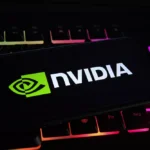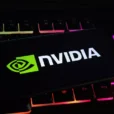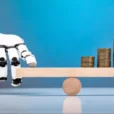
IntroductionThe perception of millennials as “dumb” and “lazy” has been a popular topic in media and scholarly discussions.  Pixabay Critics like Mark Bauerlein, in his book “The Dumbest Generation,” argue that millennials’ intellectual capacities and work ethics are compromised by their deep immersion in digital technology and a culture of instant gratification. This essay explores these claims by examining various aspects of millennial behavior and attitudes supported by factual data and expert opinions. Deterioration of Deep Learning and Cognitive Skills in the Digital AgeIntegrating digital technology into daily life has profoundly affected millennials’ intellectual engagement and cognitive abilities. Critics, including Mark Bauerlein in his book The Dumbest Generation, argue that despite unprecedented access to information, there is a notable decline in the depth of knowledge and intellectual curiosity among this generation, particularly in areas like history and politics. This phenomenon is often attributed to a shift from traditional reading habits towards digital media consumption, which offers more superficial content.Surveys and research support this view; for instance, the National Endowment for the Arts reports that only 43% of millennials engage in daily reading, compared to 50% of Baby Boomers. A deeper dive into reading habits reveals that the younger generation is less likely to engage with complex narrative forms or lengthy expository texts, which is essential for developing critical thinking and deep comprehension skills. The Impact of Digital TechnologyThe impact of digital technology extends beyond just reading habits. The constant stream of digital stimuli contributes to shorter attention spans and a preference for quickly digestible information. This environment is inherently unsuitable for engaging deeply with content that requires prolonged focus and contemplation, such as classical literature or comprehensive analytical reports. A study from Stanford University links multitasking with digital media to poorer memory consolidation and a reduction in academic performance, suggesting that the digital lifestyle might be detrimental to the cognitive capacities necessary for critical thinking and detailed understanding.Moreover, the quality of information consumed has also been affected. The rise of “infotainment” and algorithm-driven content on platforms like YouTube and social media feeds into a superficial learning and distraction cycle. This shift has significant implications for knowledge retention and engaging in thoughtful analysis. For example, a study published in the Journal of Cognitive Neuroscience found that heavy media multitaskers are more susceptible to distractions, which diminishes their ability to process and store information effectively. Evidence of Declining Intellectual RigorVarious studies support concerns about millennials’ intellectual engagement. A study highlighted in Psychology Today found that millennials scored lower on tests measuring critical thinking skills than previous generations. This decline is further evidenced by a National Assessment of Educational Progress (NAEP) survey, which revealed a significant drop in U.S. History proficiency among 12th graders from 18% in 1994 to 12%.The Pew Research Center reports that millennials spend an average of 11 hours per day consuming media, predominantly through television, video games, and social media. This excessive screen time correlates with decreased attention spans and memory retention, exacerbating intellectual engagement and historical knowledge decline.TIME Magazine reports a sharp decline in empathy among millennials, correlating with increased narcissism and reduced face-to-face interactions. This lack of empathy affects personal relationships and undermines the ability to engage critically with diverse perspectives.
Pixabay Critics like Mark Bauerlein, in his book “The Dumbest Generation,” argue that millennials’ intellectual capacities and work ethics are compromised by their deep immersion in digital technology and a culture of instant gratification. This essay explores these claims by examining various aspects of millennial behavior and attitudes supported by factual data and expert opinions. Deterioration of Deep Learning and Cognitive Skills in the Digital AgeIntegrating digital technology into daily life has profoundly affected millennials’ intellectual engagement and cognitive abilities. Critics, including Mark Bauerlein in his book The Dumbest Generation, argue that despite unprecedented access to information, there is a notable decline in the depth of knowledge and intellectual curiosity among this generation, particularly in areas like history and politics. This phenomenon is often attributed to a shift from traditional reading habits towards digital media consumption, which offers more superficial content.Surveys and research support this view; for instance, the National Endowment for the Arts reports that only 43% of millennials engage in daily reading, compared to 50% of Baby Boomers. A deeper dive into reading habits reveals that the younger generation is less likely to engage with complex narrative forms or lengthy expository texts, which is essential for developing critical thinking and deep comprehension skills. The Impact of Digital TechnologyThe impact of digital technology extends beyond just reading habits. The constant stream of digital stimuli contributes to shorter attention spans and a preference for quickly digestible information. This environment is inherently unsuitable for engaging deeply with content that requires prolonged focus and contemplation, such as classical literature or comprehensive analytical reports. A study from Stanford University links multitasking with digital media to poorer memory consolidation and a reduction in academic performance, suggesting that the digital lifestyle might be detrimental to the cognitive capacities necessary for critical thinking and detailed understanding.Moreover, the quality of information consumed has also been affected. The rise of “infotainment” and algorithm-driven content on platforms like YouTube and social media feeds into a superficial learning and distraction cycle. This shift has significant implications for knowledge retention and engaging in thoughtful analysis. For example, a study published in the Journal of Cognitive Neuroscience found that heavy media multitaskers are more susceptible to distractions, which diminishes their ability to process and store information effectively. Evidence of Declining Intellectual RigorVarious studies support concerns about millennials’ intellectual engagement. A study highlighted in Psychology Today found that millennials scored lower on tests measuring critical thinking skills than previous generations. This decline is further evidenced by a National Assessment of Educational Progress (NAEP) survey, which revealed a significant drop in U.S. History proficiency among 12th graders from 18% in 1994 to 12%.The Pew Research Center reports that millennials spend an average of 11 hours per day consuming media, predominantly through television, video games, and social media. This excessive screen time correlates with decreased attention spans and memory retention, exacerbating intellectual engagement and historical knowledge decline.TIME Magazine reports a sharp decline in empathy among millennials, correlating with increased narcissism and reduced face-to-face interactions. This lack of empathy affects personal relationships and undermines the ability to engage critically with diverse perspectives.
– Research indicates that millennials’ economic challenges, such as higher unemployment and underemployment rates, contribute to their intellectual disengagement. The stress and demands of navigating a difficult job market can divert attention and resources from educational and scholarly pursuits. Overview of Declining Skills Among MillennialsMathematical Skills
Millennials in the U.S. have shown a decline in mathematical skills, crucial for problem-solving and critical thinking in data science, economics, and engineering. A Program for International Assessment of Adult Competencies (PIAAC) report highlights that American millennials lag behind their international peers in numeracy and problem-solving in technology-rich environments. This decline affects their ability to apply mathematical concepts to real-world problems, indicating a basic and advanced mathematical proficiency gap.Science Literacy
Science literacy among millennials is also waning. The National Assessment of Educational Progress (NAEP) data shows a decline in science scores among U.S. students, which extends into their adult years. This trend suggests a decreased ability to understand and engage with scientific concepts and processes, essential for informed decision-making and participation in a technologically advanced society.Home and Mechanical Skills
Reports indicate a decline in practical skills such as home repair and mechanical troubleshooting among millennials. This shift may be attributed to educational systems focusing more on digital skills than on traditional practical skills, coupled with an increased reliance on technology and professional services. The lack of these skills impacts personal independence and broader societal capabilities in dealing with everyday mechanical or maintenance issues.Common Sense and Practical Problem Solving
There is a perceived decline in common sense and practical problem-solving skills among millennials, potentially due to reduced face-to-face interactions and an over-reliance on digital communication. This decline can limit their ability to navigate everyday challenges effectively and make sensible decisions that require a direct understanding of physical and social environments.Implications
The decline in these essential skills among millennials has significant implications for workforce readiness and societal engagement. It suggests a need for educational reforms that balance traditional learning objectives with modern technological proficiencies and for initiatives that promote practical and problem-solving skills outside formal educational settings. Work Ethics and Professional AttitudesMillennials are often stereotyped as lazy and entitled, particularly in the workplace. This perception stems from observable trends such as frequent job-hopping and a demand for flexible work conditions, which older generations interpret as a lack of commitment and discipline. However, it’s essential to consider that the modern workplace and economic environment have evolved. Millennials prioritize job satisfaction and personal fulfilment over the traditional markers of success, such as long-term tenure at a company. According to a Gallup poll, 21% of millennials reported changing jobs within the last year, three times higher than those reported by non-millennials.Social Skills and CommunicationAnother area of concern is the alleged decline in millennials’ social skills, attributed to their preference for digital communication over face-to-face interactions. Critics argue this leads to poorly developed social skills, making millennials seem rude or inconsiderate in professional settings. The reliance on electronic communication reduces millennials’ ability to engage in meaningful conversations and develop strong interpersonal relationships. However, research from the Pew Research Center indicates that while digital communication is prevalent, many millennials use technology to effectively enhance and maintain their relationships and networks. ConclusionThe evidence is clear and compelling: Millennials demonstrate significant deficiencies in critical areas compared to previous generations. Research published in “Psychology Today” reveals that millennials have scored lower on essential tests of thinking than their predecessors. Moreover, data from the National Assessment of Educational Progress (NAEP) shows a disturbing decline in U.S. History proficiency among 12th graders, dropping from 18% in 1994 to 12%. These are not isolated anecdotes but indicators of a broader, systemic issue.Additionally, a Pew Research Center report highlights that millennials spend an average of 11 hours per day on media consumption, predominantly watching TV, playing video games, and engaging on social media. This excessive screen time is directly linked to shorter attention spans and reduced memory retention, further contributing to the decline in intellectual engagement and historical knowledge.While millennials bring specific strengths such as digital literacy and adaptability, the drawbacks in historical knowledge, critical thinking, and attention span must be addressed decisively. We must take bold steps to counteract these trends. This could involve reinforcing traditional educational methods, implementing stricter regulations on social media usage, or a strategic blend of both approaches.Immediate and assertive action is required to combat this intellectual apathy and ignorance trend. Only through such measures can we hope to enhance the intellectual capacity of future generations and restore confidence in their potential for growth and development. More By This Author:IBM Stock Price Forecast 2024: Examining IBM’s Strategic VisionSavings Bonds 101: How Savings Bonds WorkCopper ETF 3X: Rock On Or Get Rolled Over















